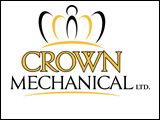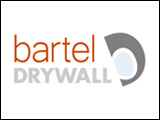Note: This is a two-part blog post. The focus in this post of Dr. Hendrik van der Breggen, PhD, primarily addresses the positive arguments for MAID.
Canada’s government has decided to expand the scope of medical assistance in dying (MAID). MAID has been legal in Canada since June 2016. During the next few months the restriction that natural death must be reasonably foreseeable will be removed, and this summer the possibility of offering MAID to mature minors (children) and people with mental illness will be seriously considered. Unfortunately, public discourse on MAID has been skewed: arguments in favor of MAID seem more prevalent than arguments against. Call me old-fashioned, but I think citizens – informed citizens – should look at pros and cons, not just pros. Let’s do that. (Spoiler alert: I think the cons outweigh the pros.)
First, some clarification. “Medical assistance in dying” is a euphemism – and thus is misleading at the get-go. When certain words are considered too blunt, harsh, painful, or offensive, people sometimes substitute a euphemism, that is, a more acceptable term, a term with fewer negative connotations or with more positive connotations, than the blunt, harsh, painful, or offensive term. Here are some examples of useful but harmless euphemisms. “I’m sorry that Sam passed away.” These words allow us to be sensitive to Sam’s grieving wife and are infinitely kinder than saying, “I’m sorry about Sam’s getting slowly crushed to death by the gravel truck.”. Another example: “May I use the washroom?” Yes, as any parent knows, these words allow children to be sensitive to those around the dinner table. Respect and politeness are good, to be sure. Euphemisms are sometimes helpful, but they can also desensitize us emotionally and hide reality – including moral reality.
Interestingly, the dangers inherent in euphemisms were almost prophetically envisioned by George Orwell in his famous novel 1984 and in his lesser known essay “Politics and the English Language.” Orwell put forward the idea that an effective mechanism of political control is the manipulation of euphemisms employed in public discussion.
Back to MAID: Yes, of course, we all want medical assistance in dying. Please, doctors and nurses, provide us with clean sheets, proper nutrients, and morphine (as needed) as we die. Please, doctors and nurses, provide us with comfort as natural death takes its course. But, wait, when politicians and policy makers are talking about MAID, they’re actually talking about doctors and nurses actively causing death. MAID is physician-assisted suicide – killing. Dying and killing are not the same. It’s important to be clear about this distinction and not be bamboozled by euphemisms.
1: Personal autonomy
A major pro for MAID (physician-assisted suicide/killing) is the exercise of personal autonomy, that is, the individual’s choice in general and, in particular, the individual’s choice in response to suffering. Suffering can be terrible, to be sure. And freedom is precious, truly. So – yes – personal autonomy is important. But, and this often gets neglected, the freedom to exercise one’s autonomy is not absolute. For example, I enjoy smoking a pipe. But it turns out that I do not have the freedom to smoke my pipe in my local pub (at least not in Canada). Also, I do not have the freedom to drink beer while I drive my car. Also, I do not have the freedom to drive my car on the sidewalk. Nor do I have the freedom to swing my fist without regard for the tips of other people’s noses. In other words, although personal autonomy is important, the individual does not live in a social vacuum. In public policy matters we should think about the individual’s freedom AND the possible consequences – possible negative consequences – for our neighbors, that is, for our larger society (more on MAID’s possible negative consequences later). Upshot: Merely appealing to personal autonomy as a justification of MAID is not enough. We’ve got to step out of our self-centered bubbles.
2: Unbearable suffering
Another major pro for MAID is the popular argument that either we have MAID or we face an unbearably painful death, but an unbearably painful death is horrible, so we should have MAID. A counter-consideration is that this popular argument is fallacious. It presents us with a false dichotomy. It presumes that there are only two options: death by assisted suicide, or death with unbearable suffering. But there’s a third option: palliative care. In my years of teaching ethics, I’ve noticed that many people – young and old – simply don’t know what palliative care is. Behold, then: palliative care is a branch of medicine that focuses on relief of physical and mental pain without curing the disease.
Enter Doris Barwich, M.D., President of Canadian Association of Palliative Care Physicians: “Pain is rarely the reason patients ask for hastened death – it more often comes out of a desire to control the circumstances surrounding death. Fortunately, we can assure our patients that with Palliative Care tools and resources, pain and other distressing symptoms can usually be controlled, and support provided to ensure comfort and quality of life.” (Focus magazine, April 2013)
Along with palliative care, there is something called dignity therapy. According to Dr. Harvey Chochinov, a psychiatry professor at the University of Manitoba and a Canada Research Chair in palliative care, “Dignity therapy really tries to look at what are the sources, what are the things that might cause or undermine dignity toward the end of life,” and it works to alleviate those things. (Blaise Alleyne and Jonathon Van Maren, A Guide to Discussing Assisted Suicide [Toronto: Life Cycle Books, 2017], p. 83.)
What about the difficult cases? First, keep in mind that with advances in palliative care and dignity therapy, difficult cases are becoming rare. Second, keep in mind that focusing only on rare cases doesn’t make for good general policy decision-making. Third, keep in mind that instead of MAID – active killing – there is, for the rare difficult cases, palliative sedation.
What is palliative sedation? According to the Journal of the American Medical Association, “Palliative sedation is the use of sedative medications to relieve extreme suffering by making the patient unaware and unconscious (as in a deep sleep) while the disease takes its course, eventually leading to death. The sedative medication is gradually increased until the patient is comfortable and able to relax. Palliative sedation is not intended to cause death or shorten life.”
Significantly, if, foreseeably, palliative sedation hastens death, it needn’t be judged unethical. According to ethicist Margaret Somerville, just as death isn’t the intended effect of high risk surgery (needed to relieve pain), and so such surgery isn’t immoral if death occurs, so too if death isn’t the intended effect of high risk pain management, yet death occurs, then such pain management isn’t immoral either. (Margaret A. Somerville, “Euthanasia is never necessary,” Citizen, June 1999, p. 6.)
Here’s the rub: There’s an important moral difference between engaging in a procedure with intent to kill (i.e., MAID’s active killing) rather than not (palliative sedation). MAID takes the lower moral ground.
3: Extraordinary and burdensome medical technology
Another major pro for MAID is that when we’re dying, we (including myself!) don’t want to be forced to live because of all the marvelous albeit extraordinary and burdensome medical technology that’s now available.
A con or counter-consideration here is that allowing terminally ill patients to die from their illness via termination of life support by withdrawing/withholding extraordinary, burdensome, or medically useless treatment is already a legal and ethical part of palliative care – and doesn’t require MAID. And we can make advance requests for this.
Ethicist Scott Rae: “Physicians need not always ‘do everything’ to stave off death, especially when it involves no more than simply delaying an inevitable death…. Choices about CPR, respirators, and intravenous procedures in the last weeks of life should not be viewed as choices for death.” (Scott B. Rae, Moral Choices: An Introduction to Ethics, 3rd edition [Grand Rapids, Michigan: Zondervan, 2009], p. 221.)
Authors Blaise Alleyne and Jonathon Van Maren: “No one is obligated to undergo burdensome treatment. This is to be distinguished from providing the basic necessities of life, like water and nutrition – it’s not okay to starve someone to death.” (Alleyne and Van Maren, Guide to Discussing Assisted Suicide, p. 76.)
Hendrik van der Breggen, PhD, is a retired philosophy professor who lives in Steinbach, Manitoba.



